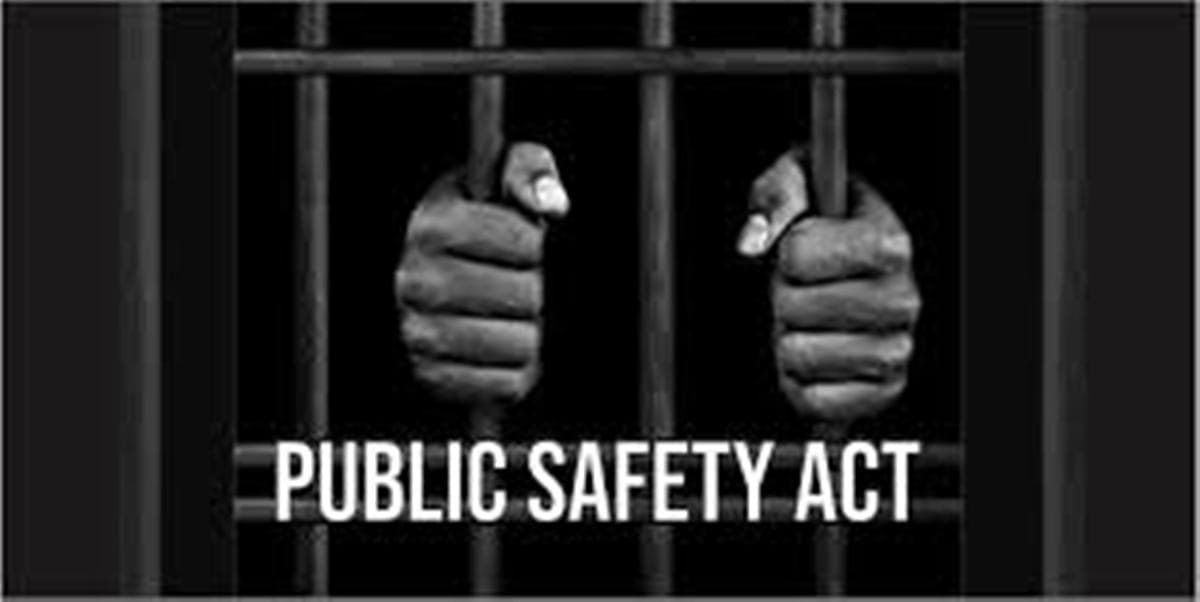
J&K Police’s PSA Crackdown in Srinagar: Constitutional Analysis of Public Safety Act’s Role in Mass Detentions Post-Pahalgam Attack
In the beginning
In the weeks that followed the incident that took place in Pahalgam on April 22, 2025, which resulted in the death of several people, the Jammu and Kashmir Police initiated a comprehensive enforcement operation throughout Srinagar in accordance with the Jammu and Kashmir Public Safety Act, 1978 (PSA).
The detentions were explained by the authorities as being essential in order to prevent additional violence and to ensure public order in a city that was already fraught with tension.
A large number of people were taken into custody, and according to accounts, between seventy-five and ninety individuals were officially detained under preventative detention orders.
For any queries or to publish an article or post or advertisement on our platform, do call at +91 6377460764 or email us at contact@legalmaestros.com.
Additionally, thousands of additional individuals were subjected to questioning or short-term incarceration. In this essay, the constitutional consequences of deploying the PSA in Srinagar are investigated. Particular attention is paid to the detention powers of the Act, procedural safeguards, and the gaps that exist between legislative authority and fundamental rights protections.
The Pahalgam Attack and the Security Response: Some Background Information
When five armed terrorists ambushed a group of tourists in the Baisaran Valley close to Pahalgam on April 22, they were responsible for the deaths of twenty-six civilians and injuries to twenty others. pilgrims of both the Christian and Hindu faiths, as well as a local Muslim pony operator, were among those who were killed.
For any queries or to publish an article or post or advertisement on our platform, do call at +91 6377460764 or email us at contact@legalmaestros.com.
The original claim of responsibility for this attack was made by The Resistance Front, which resulted in a vigorous security response throughout Jammu & Kashmir. The state government made use of the PSA in order to apprehend those who were believed to have been collaborators as well as “subversive elements” who were believed to have assisted or sheltered the perpetrators of the attack.
In Srinagar alone, police raids were carried out in over twenty different localities, with cordons being removed at dawn and searches being carried out inside private residences respectively. The authorities maintained that such broad preventive efforts were necessary in order to discourage acts of retaliatory violence and to provide residents and tourists with a sense of self-assurance.
The Public Safety Act and Constitutional Protections
In accordance with the PSA, preventive detention is situated at a precarious juncture between the prerogatives of the state regarding security and the liberties of individuals. The Constitution of India provides for various safeguards to protect individuals from being arrested and detained without just cause.
For any queries or to publish an article or post or advertisement on our platform, do call at +91 6377460764 or email us at contact@legalmaestros.com.
Article 21 guarantees that no individual shall be deprived of their life or their personal liberty unless it is done so in accordance with the procedure that has been established by law. Individuals who are arrested are granted additional rights, such as the right to be notified of the grounds for their detention and the right to meet with legal counsel, as outlined in Article 22.
As a result of the removal of Jammu and Kashmir’s special status in 2019, these fundamental safeguards were extended to the state in their entirety. In spite of this, the PSA continues to permit executive detention without trial for a period of up to two years in certain situations, which raises doubts about whether or not it complies with constitutional standards of equitable treatment and due process.
For More Updates & Regular Notes Join Our Whats App Group (https://chat.whatsapp.com/DkucckgAEJbCtXwXr2yIt0) and Telegram Group ( https://t.me/legalmaestroeducators )
For any queries or to publish an article or post or advertisement on our platform, do call at +91 6377460764 or email us at contact@legalmaestros.com.
Provisions of the Public Safety Act of 1978 That Are Principal
The PSA provides executive authorities with considerable authority to detain or arrest individuals. A Divisional Commissioner or District Magistrate has the authority to issue an order for preventive detention of any individual who is behaving in a manner that is “prejudicial to the maintenance of public order” or “security of the state” in accordance with Section 8. Once an individual has been detained,
Section 13 mandates that the authorities must reveal the reasons for the custody in writing within ten days. However, Section 2 allows the authorities to conceal information that is believed to be inappropriate for the public good.
In order to receive confirmation, detention orders must be presented to the State Government within a period of twelve days. In spite of the fact that Section 16 creates a non-judicial Advisory Board with the responsibility of reviewing each detention within a period of four weeks, detainees are expressly prohibited from having legal representation before those boards.
For any queries or to publish an article or post or advertisement on our platform, do call at +91 6377460764 or email us at contact@legalmaestros.com.
It is important to note that Section 22 offers immunity to authorities for measures conducted in good faith in accordance with the Act. This protection effectively protects them from being challenged in court for unlawful detention.
Srinagar’s Intense Repression
Srinagar was the site of one of the most comprehensive public service announcement efforts in recent memory, which took place in the aftermath of the Pahalgam attack. During the course of a single day, the police arrested 23 people and classified them as “terror associates.”
By the beginning of May, the total number of PSA orders had surpassed 90. In addition, the authorities detained over 3,000 individuals for the purpose of interrogation and arrested over 2,800 individuals on a variety of offenses, ranging from claimed affiliations with banned organizations to allegations of throwing stones.
For any queries or to publish an article or post or advertisement on our platform, do call at +91 6377460764 or email us at contact@legalmaestros.com.
There were nightly raids in the historic core of the city and the adjacent areas. Families reported that they were forced to enter their homes and that their property was damaged. Some people believe that many of them who were jailed had no link to the incident and that they were targeted only for their political opposition or because they belonged to communities that were vulnerable.
Consequences of Mass Preventive Detention from a Constitutional Perspective
There are serious constitutional concerns raised by the practice of mass detentions under the PSA. To begin, the expansive language of Section 8 makes it possible to classify many different kinds of actions as “prejudicial” to public order, and this is frequently done without any clear guidance from the legislature.
Due to the fact that decisions may be made based on arbitrary administrative discretion, this expansiveness runs the possibility of violating the promise of equality before the law that is included in Article 14. Second, the inability of a detainee to establish effective legal challenges is hindered by the delayed or partial disclosure of detention grounds under Section 13.
For any queries or to publish an article or post or advertisement on our platform, do call at +91 6377460764 or email us at contact@legalmaestros.com.
This undermines the fundamental principle of Article 22, which requires notice to be provided in a timely manner and in a manner that is understandable. Lastly, the prohibition on legal representation during Advisory Board procedures undermines the procedural fairness of the processes. This is because detainees are unable to present evidence or cross-examine witnesses, which is in direct opposition to the principles of natural justice that are enshrined in Article 21.
Oversight and Advisory Mechanisms for the Judicial System
Despite the fact that the PSA seeks to establish an internal review system through the Advisory Board, this mechanism has only provided a limited amount of relief in practice. The reports of the Board are not made available to the public, and the State Government is not required to follow the recommendations that it makes.
In addition, because Section 16 does not provide a provision for judicial review of the sufficiency of grounds, the courts are only able to check compliance with the procedures, and not the substantive justification for detention.
For any queries or to publish an article or post or advertisement on our platform, do call at +91 6377460764 or email us at contact@legalmaestros.com.
The Supreme Court of India has maintained preventive detention legislation as long as they comply to statutory procedures. This is in addition to the fact that it has confirmed that Article 21 embraces both social and environmental rights.
Despite the fact that there has been a minor increase in the number of challenges to PSA orders since 2019, many detainees continue to be in a state of lengthy limbo due to the backlog of cases and the unwillingness of judges to intervene in “security” concerns.
Influence on trust in governance and the protection of civil liberties
As a result of the magnitude of the crackdown in Srinagar, the right to free expression and assembly has been severely restricted. Residents have reported engaging in self-censorship, being reluctant to take part in nonviolent demonstrations, and being afraid of being arbitrarily arrested.
For any queries or to publish an article or post or advertisement on our platform, do call at +91 6377460764 or email us at contact@legalmaestros.com.
A number of individuals who work for human rights contend that the collective incarceration of family members or community leaders exacerbates feelings of alienation and undermines faith in the rule of law.
Preventive detention without transparent control runs the risk of exacerbating existing complaints in a region that has been plagued by conflict for a long time. If citizens believe that constitutional provisions are not enforceable or that they are subject to executive fiat, then those protections lose their significance.
The implementation of the Public Safety Act in Srinagar brings to light a significant conflict between the constitutional guarantees of personal liberty and the obligations of the state to maintain public safety.
For any queries or to publish an article or post or advertisement on our platform, do call at +91 6377460764 or email us at contact@legalmaestros.com.
At the same time as the government is obligated to protect itself against terrorist threats, it is also responsible for ensuring that the powers of detention are exercised in a manner that is transparent, limited, and respectful of individual rights.
By restricting the criteria for detention, assuring full disclosure of grounds, allowing detainees the access to counsel before advisory bodies, and improving judicial review, reforming the Peace and Security Act (PSA) to conform more closely with the requirements of Article 21 and Article 22 will maintain both public safety and the rule of law.
In order to build genuine stability and bridge the trust gap that exists between the people of Jammu and Kashmir and the state, such actions are the only way to accomplish these goals.
For any queries or to publish an article or post or advertisement on our platform, do call at +91 6377460764 or email us at contact@legalmaestros.com.




![Research Assistantship @ Sahibnoor Singh Sindhu, [Remote; Stipend of Rs. 7.5k; Dec 2025 & Jan 2026]: Apply by Nov 14, 2025!](https://legalmaestros.com/wp-content/uploads/2025/11/Gemini_Generated_Image_s0k4u6s0k4u6s0k4-768x707.png)
![Karanjawala & Co Hiring Freshers for Legal Counsel [Immediate Joining; Full Time Position in Delhi]: Apply Now!](https://legalmaestros.com/wp-content/uploads/2025/11/Gemini_Generated_Image_52f8mg52f8mg52f8-768x711.png)
![Part-Time Legal Associate / Legal Intern @ Juris at Work [Remote]: Apply Now!](https://legalmaestros.com/wp-content/uploads/2025/11/ChatGPT-Image-Nov-12-2025-08_08_41-PM-768x768.png)
![JOB POST: Legal Content Manager at Lawctopus [3-7 Years PQE; Salary Upto Rs. 70k; Remote]: Rolling Applications!](https://legalmaestros.com/wp-content/uploads/2025/11/ChatGPT-Image-Nov-12-2025-08_01_56-PM-768x768.png)
1 thought on “J&K Police’s PSA Crackdown in Srinagar: Constitutional Analysis of Public Safety Act’s Role in Mass Detentions Post-Pahalgam Attack”